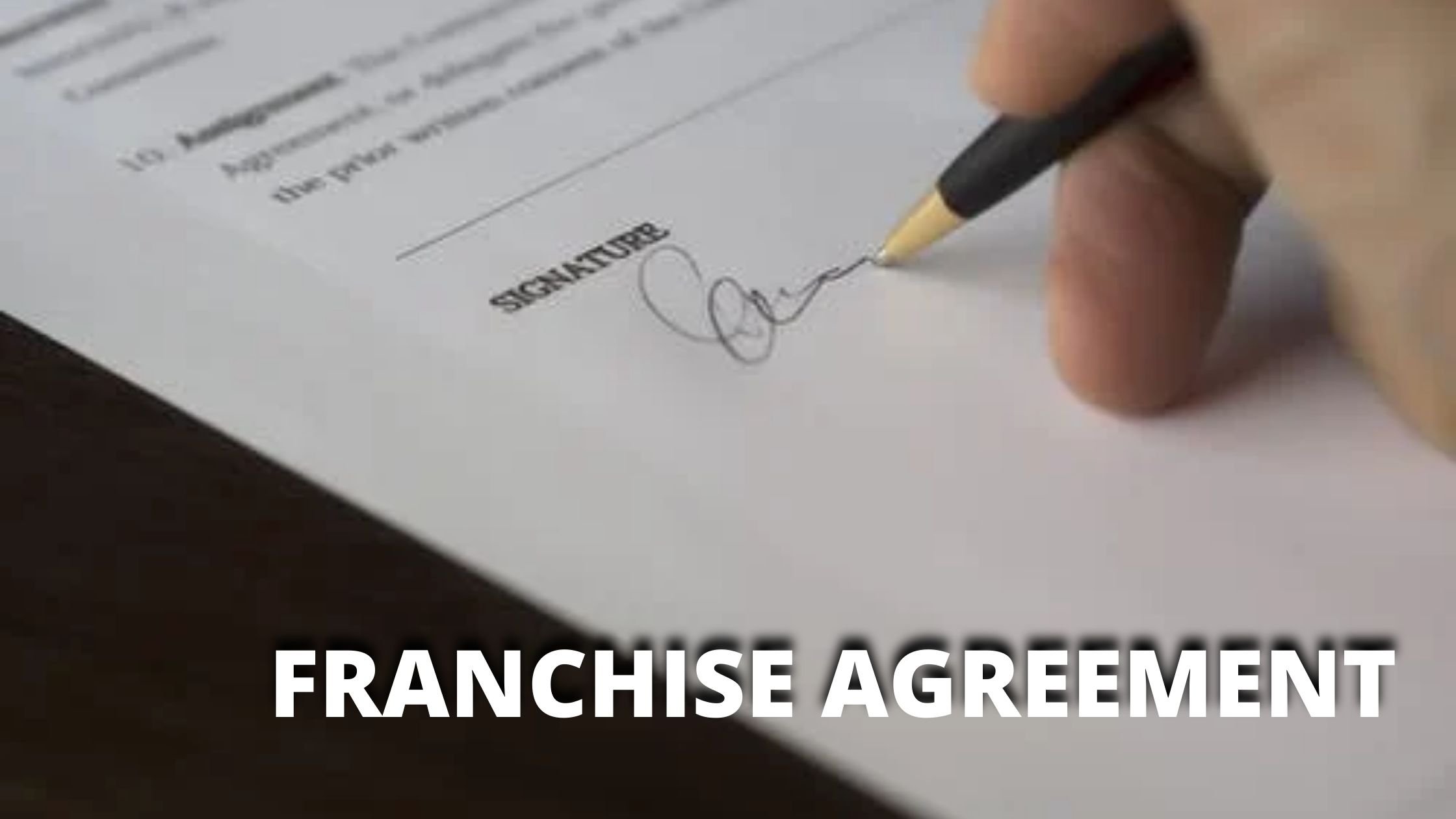FRANCHISE AGREEMENTS
A franchise agreement is a legally binding document that outlines a franchiser's terms and conditions for a franchisee. It is generally a written agreement between two parties. Although the agreement does not have any standard format, and the structure can vary from business to business, it governs the working of the franchisees and presents a layout of what is to be expected from the business. The central theme of the franchising agreement is to encourage partnership and the licensing of the intellectual property rights.

FRANCHISE AGREEMENTS
A franchise agreement is a legally binding document that outlines a franchiser's terms and conditions for a franchisee. It is generally a written agreement between two parties. Although the agreement does not have any standard format, and the structure can vary from business to business, it governs the working of the franchisees and presents a layout of what is to be expected from the business.
The central theme of the franchising agreement is to encourage partnership and the licensing of the intellectual property rights. It is mandatory to specify which of the intellectual property is being licensed to use as it ensures consistency and safety in the working of the brand.
As there are no specific laws governing the franchise industry, it can prove to be fatal for the franchiser if the agreement is not made with proper terms and conditions. Therefore it is important to keep in mind certain clauses before getting into a franchise agreement.
To know more about, what is franchise agreements, see the video below -
The format or structure of the agreement is very important. A professional franchise agreement would include:
a. The identity of the franchiser and the franchisee
b. The fee structure
c. The duration of the franchise; or renewable rights
d. The franchisee’s rights to sell the franchise
e. The operating requirements
f. Termination of breach
g. Franchise obligations and restrictions from termination
After the basics are known, there are certain mandatory provisions to be included in the franchisee agreement. They are:
1. TRAINING AND ONGOING SUPPORT: The franchiser offers training and training programs for the franchisees and their staff. These training programs may take place at corporate offices. All ongoing technical support is also outlined in the agreement.
2. ADVERTISING AND MARKETING: Just like any other fees, the advertising and marketing fees should also be well balanced as per the needs of the franchiser. Franchisers who create innovative advertising campaigns across all platforms realize the best return on investment (ROI). The marketing strategies should be designed as per the commitments made by the franchiser.
3. INSURANCE REQUIREMENTS: Franchise agreements define the minimum insurance a franchisee is required to have prior to opening and during the term of the agreement. For franchise systems, establishing satisfactory insurance standards at the outset is particularly important in order to determine appropriate coverage for the franchiser and set minimum requirements for franchisees.
4. ASSIGNED TERRITORY: Every franchise agreement does not grant an exclusive or protected territory, but specifics about the territory must be mentioned. It has to designate a territory for the operations to be held. Along with it, the franchisers also need to deal with the reservation of their rights within the territory, including online sales and distribution.
The main objective of a franchise agreement is to promote the goods and services of the franchiser through the franchisee. The products that are promoted follow strict operational standards, for example- restaurants, automobile dealerships and other business services. Different businesses require different kinds of franchise agreements. Hence it is always better to know about all the options available. The different kinds of franchise agreements are:
5. CHARACTER MERCHANDISING AGREEMENT: Under this agreement, the name of any famous personality or fictional character is licensed to be used for a particular product’s marketing. The main aim of these agreements is to protect the copyrights and reputation of the associated personalities or characters.
6. INVENTION LICENSING AGREEMENT: As the name suggests, this agreement is used by a person to patent or license any invention done by him. It is used to prevent exploitation of the invention and to create rights of the person over it. Such an agreement focuses on the licensing of patent and design rights and the manufacturing and marketing of the invention with limited risks. These agreements are extremely important to prevent any sort of duplicacy in the market.
7. MARKETING ARRANGEMENTS: This is the most common franchise agreement where the distributor usually adopts a particular format of the franchiser. These are generally used in cases of automobile companies and food chains. Here the company signs an agreement with a distributor to market his products. The distributor acts on behalf of the company by promoting and selling his products and is paid remunerations for the same.
8. TRADEMARK LICENSING AGREEMENT: Under this agreement, the owner grants a license to another person to use the trademark on his goods. These agreements can be used for sales of goods, promoting or to preserve the standard quality of goods, goodwill and reputation of the brand. The most advantageous utilization of these agreements is for territorial expansions. The trademark license can be granted to distributors in different parts of the world to expand the business. This also opens various channels for the promotion of the products and services offered by the company.
Though franchising can be a very profitable business arrangement for the franchiser and the franchisee, if not entered into properly or looked after well, it could prove quite the contrary. Both the parties should thoroughly read and scrutinize the agreement before signing it. Investors and businessmen should treat the franchise agreement like the holy grail and must go through it several times with a fine-tooth comb to make it an enormous success.
To know more about, legal issues in franchising, see the video below-
BY:-
Ridhika Kapoor












